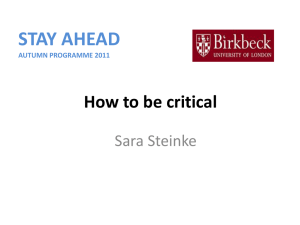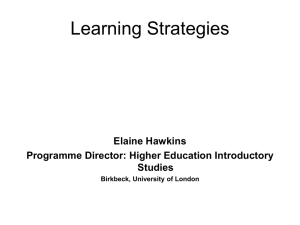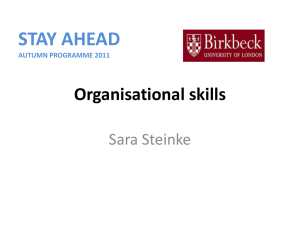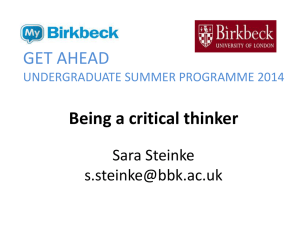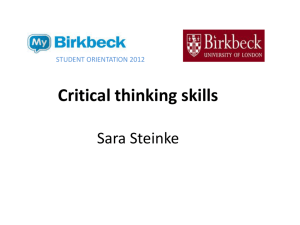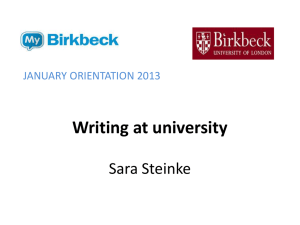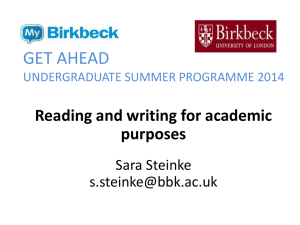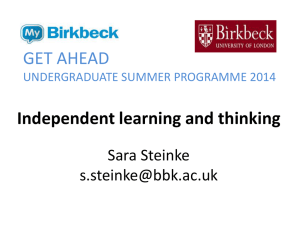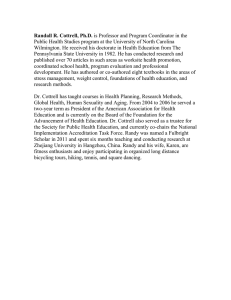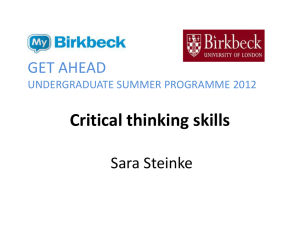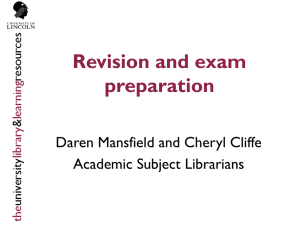Understanding complex information
advertisement
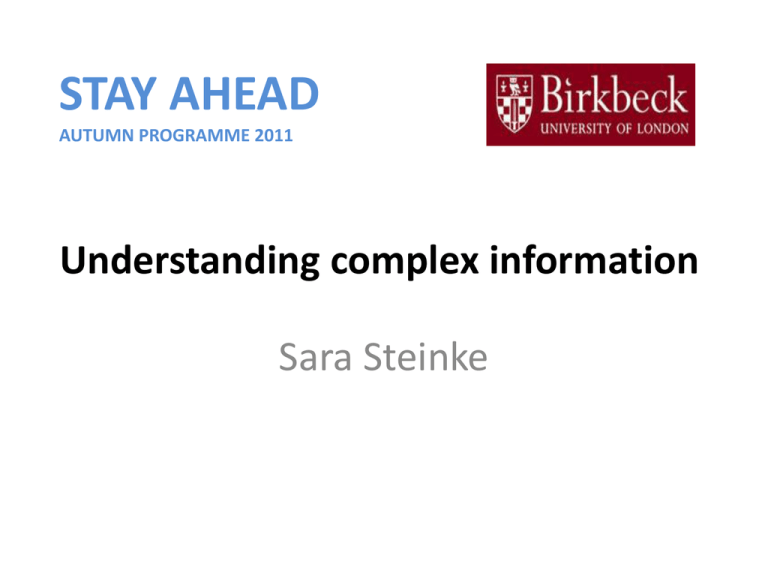
STAY AHEAD AUTUMN PROGRAMME 2011 Understanding complex information Sara Steinke Aims of the session • Consider ways of approaching intricate and interconnected information • Practise skills of recording, retrieving and using this information • Reflect upon your present strengths in understanding complex information, the areas for improvement that you are hoping for and the strategies that work best for you Think about the following 1. What do you think is meant by ‘complex information’? 2. What types of ‘complex information’ have you encountered in your first term at Birkbeck? 3. How have you dealt with ‘complex information’? How successful were you? What are the areas of improvement you are hoping for? Understanding complex material • Critical thinking about complex material – ask the what, who, why, when, where, how questions • Understanding complex material – SQ3R reading techniques may help you here • Note-taking – and retrieval of complex material • Using complex information in writing essays, presentations, research, revision, exams What is mind mapping? ‘a thinking tool that reflects externally what goes on inside your head’ • Impact Tony Buzan • Memory • Imagination • Focus How to mind map 1. Write your central idea in the middle of the page – A5 landscape is best 2. Add your main ideas – use curved, thick lines of different colours 3. Write secondary ideas related / developing to the main ideas – use thinner lines as you add more ideas 4. Use images, symbols, key words 5. Make links to show connections the between the ideas – a dotted line is fine Advantages of mind mapping • Quicker to write and read • Gives you an excellent overview • Forces you to be brief • Relationship between ideas becomes obvious • Can add more details around the map at a later stage • Visual, more easily remembered than linear, written notes Class activity: brainstorming studying Class activity: essay planning Draw a mind map to plan the following essay question Discuss the consequences of the increase in university tuition fees for students. What are the strengths of the article? What are the weaknesses of the article? What opportunities does the article propose? What threats does the article pose? Think about critical thinking skills – arguments, reasoning, sources, evidence, author, audience Explore the advantages and disadvantages of the Olympics for London. Reflective learning 1. Write down the three most important things that you have learnt / thought about in this session? Why were they important to you? 2. Are there any areas of improvement that you need to take action on? If so, what are you doing to do to improve this aspect of your learning? Recap of the session • Considered ways of approaching intricate and interconnected information • Practised skills of recording and retrieving and using this information • Reflected upon your present strengths in understanding complex information, the areas for improvement that you are hoping for and the strategies that work best for you Cottrell, S. (2008) The Study Skills Handbook, 3rd Edition (London, Palgrave) chapter 12 ‘Critical analytical thinking’ pp.275-292 Cottrell, S. (2005) Critical Thinking Skills (London, Palgrave) http://www.palgrave.com/skills4study/ pdfs/critical%20analysis%20.pdf (transcript of the audio file) http://www.bbk.ac.uk/mybirkbeck /services/facilities/support/criticalthinking (several online resources available on the Birkbeck Library website) http://www.bbk.ac.uk/mybirkbeck/ http://www.palgrave.com/skills4 get-ahead-stay-ahead/skills/criticalthinking study/mp3s.asp#Critical (a 12 minute audio file based on (a 5 minute interactive tutorial Cottrell’s Critical Thinking Skills supporting this Get Ahead Summer programme) book)
